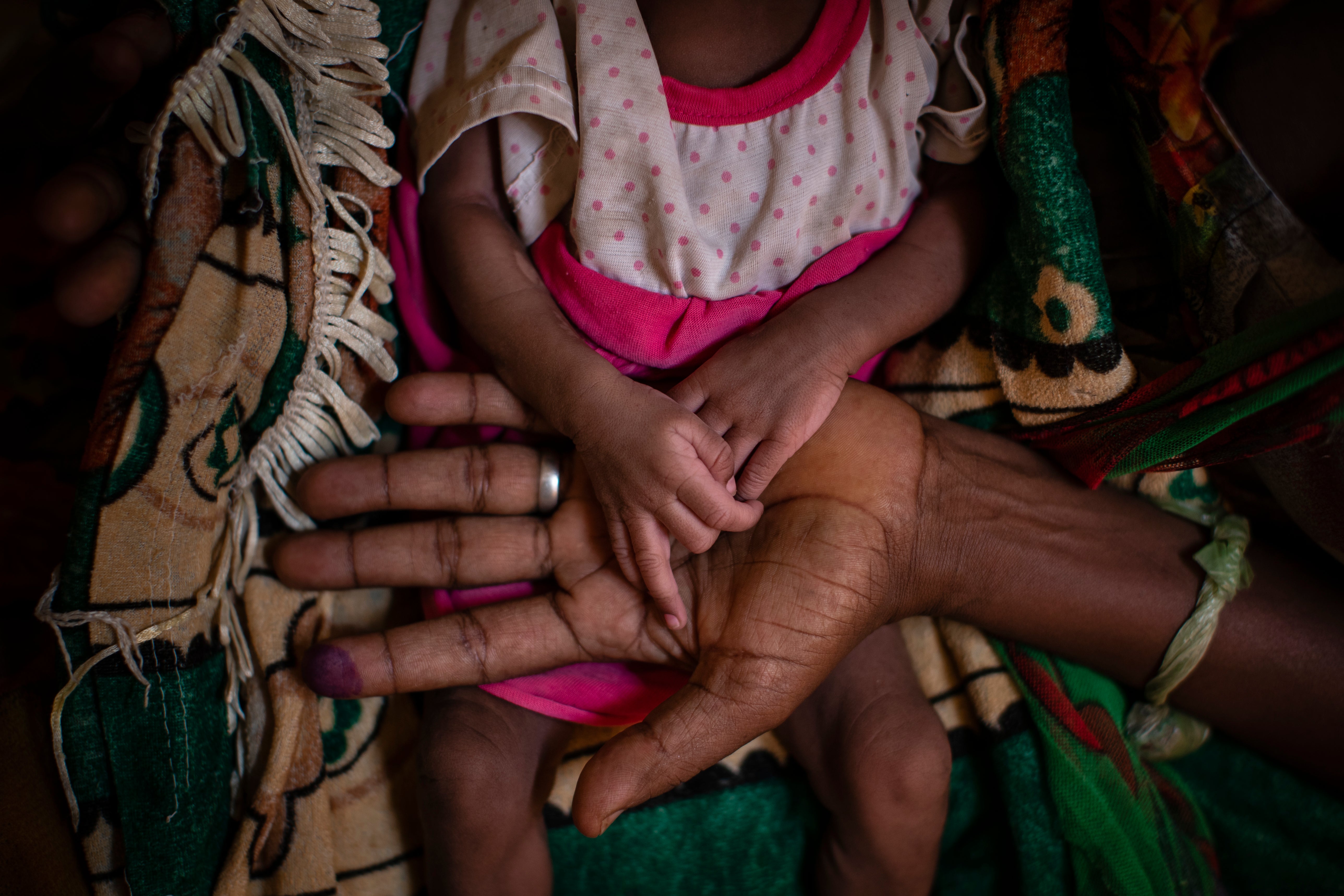There is a deadly ‘pandemic’ raging through the world right now and it isn’t Covid – it’s hunger
The arrival of the coronavirus is a major factor behind the global hunger crisis. But it’s also being driven by climate and conflict, says Bel Trew. And this is where we can actually step in to help


It is understandable that headlines around the world continue to be gripped by Covid-19, particularly as the Delta variant rages through countries including the UK.
But a far deadlier “virus” is taking hold unnoticed.
Hunger is killing 11 people per minute according to a new report released by Oxfam this week: that is nearly double the rate of people dying from Covid-19. Oxfam predicts these rates are only going to continue to rise.
Since the start of pandemic, the number of people living in famine-like conditions has increased by a staggering six times to more than 520,000.
Overall, 155 million people around the world are now living in crisis levels of food insecurity or worse – that is 20 million more than last year.
The arrival of the coronavirus, which has shut down countries and devastated economies is, of course, a major factor behind the crisis. But hunger is also being driven by climate and more urgently, conflict, which is the primary reason, being responsible for two of every three people who are going hungry.
And this is where we can actually step in to help and to have an immediate impact.
Despite urgent calls for ceasefires across the world, because of the added humanitarian pressure of the pandemic violence has gone largely unabated since Covid-19 gripped the planet in spring 2020.
In fact, completely counterintuitively, global military spending has actually risen over the last year by nearly 3 per cent, according to Oxfam.
To put that in stark terms, that 2.7 per cent increase is the equivalent of $51bn (£36.7bn), which is enough to cover the $7.9bn (£5.8bn) 2021 UN humanitarian food security appeal six and a half times over.
In fact, according to Oxfam, saving just a day-and-a-half’s worth of our global military spending would amount to $8bn (£5.7bn): enough to fund that entire emergency food security programme, meaning people could actually eat.
Instead, this money is not only wasted, but fuelling wars that are driving more people into starvation.
For example, it is no coincidence that, according to Oxfam, Mali increased its arms purchases by 669 per cent since violence escalated in 2012 and in the past year, hunger in the Western African Sahel region, including Mali, has soared by nearly 70 per cent.
It is also no coincidence that the world’s worst hunger hotspots – including Afghanistan, the Democratic Republic of the Congo, Syria and Yemen – are all torn apart by conflict.
Meanwhile in Ethiopia’s war-ravaged Tigray region, more than 350,000 people are experiencing famine-like conditions as fighting has continued. That’s the largest number recorded in this catastrophic level of hunger since Somalia in 2011, when a quarter of a million Somalis lost their lives to hunger.
In real terms, in the region I cover, families I’ve spoken to in Syria and Yemen over the years have spoken of feeding their children with grass or leaves.
I’ve met children so wasted by malnutrition they are teenagers but look like toddlers. It’s not just death that stalks families. The younger generations, even if they survive into adulthood, will face permanent health problems.
In the country where I live, Lebanon, a hunger crisis is setting in because of economic collapse – it’s now not uncommon to see people rifling through bins trying to find food. Some more well-off citizens now even leave bags of produce out specially for those forced to be bin scavengers.
Despite the severity of the acute hunger problems, little to nothing changes. In fact, the situation regularly gets worse year on year, even though there are easy steps the world can take to end hunger – which is possible.
Ending conflict, or at the very least not fuelling it through rampant weapons sales, and allowing aid to reach those most in need, will immediately make a difference. Rather than only donating money to charities to plug a shortfall, as citizens we can force our governments to change. The UK government, for example, at one point was the world’s second biggest arms dealer after the United States.
The climate crisis, which is fuelling extreme weather events worsening hunger, also needs to be tackled head on. Something we as citizens can also lobby our governments to care about.
Ending hunger permanently is a little more complex. Oxfam says there needs to be a dramatic rethink of a fairer and more sustainable global economy, particularly countries recovering from the pandemic. That means eradicating the underlying inequalities that widen the gap between rich and poor people.
It is bleak, it will be a long journey, but it is possible to end hunger. No one should be starving in the 21st century.
Join our commenting forum
Join thought-provoking conversations, follow other Independent readers and see their replies
Comments